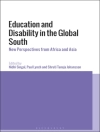A groundbreaking analysis of 21st century labour practices in the mining industry and the new scramble for industrial power on the African continent.
Since the beginning of the 21st century, African countries with mineral resources have witnessed an unprecedented rise in foreign direct investments and the development of new flexible workforce management practices in the mining industry. But what does this mean for those who actually work in this industry? Based on research in the Congo and Zambia, where a mining boom has led to more than thirty new mining projects in recent years, this book explores the processes of improvisation and adaptation behind the emergence of this neoliberal labour regime. The contributors show how mining projects’ labour practices have been mediated, negotiated, or resisted by mine workers, unionists, and human resource managers. They discuss variations in labour practices put in place by new mining projects depending on the type of capital involved, the type of mine being developed, and their location. Finally, the book examines the implications of power dynamics surrounding companies’ labour strategies from the broader perspective of the responsibility of trade unions, gender equality, and identity politics.
Spis treści
Introduction: Mining Capitalism from Below by Benjamin Rubbers
Labour Regimes: A Comparative History by Benjamin Rubbers and Emma Lochery
Safety: The Politics of Life in a Neoliberal Labour Regime by James Musonda and Francesca Pugliese
Gender: Navigating a Male-dominated Space by Francesca Pugliese and James Musonda
Union Elections: Marketing 'Modern’ Unionism by Kristien Geenen and Thomas Mc Namara
Strikes: Claiming Union Power in Chinese Companies by Thomas Mc Namara and Kristien Geenen
Human Resource Managers: Mediating Capital and Labour by Emma Lochery and Benjamin Rubbers
Conclusion: Beyond the Neoliberal Labour Regime by Benjamin Rubbers
O autorze
BENJAMIN RUBBERS is Professor of Anthropology at the University of Liège, Lecturer at the Université Libre de Bruxelles, and a Research Associate at the Society, Work, and Development Institute of the University of the Witwatersrand.












